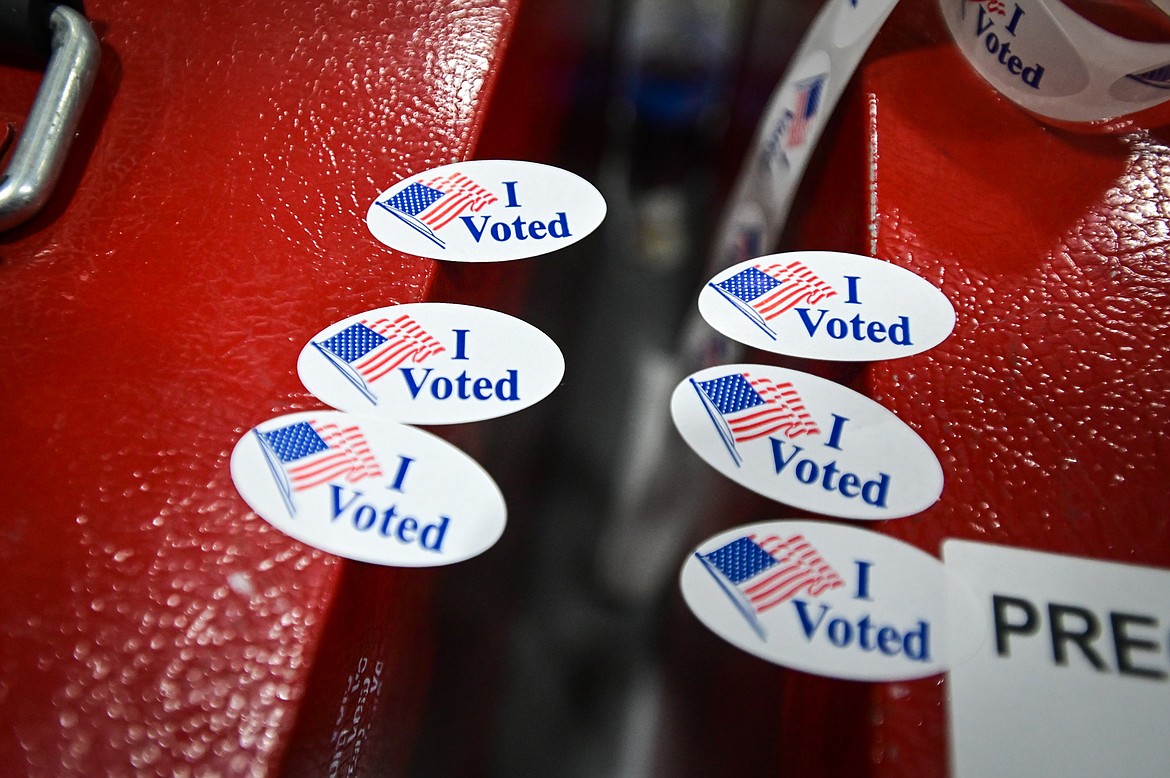Montana law ending Election Day voter registration on hold
HELENA (AP) — The Montana Supreme Court, in a split ruling on Wednesday, upheld a temporary order blocking the enforcement of two election-related laws passed by the 2021 Montana Legislature while the laws are being challenged in court.
Five justices agreed with a lower-court judge who blocked a law that required people using a student identification to register and vote provide another document including their name and address.
Four justices agreed that District Court Judge Michael Moses was correct in temporarily blocking a law that ended Election Day voter registration while the court case plays out.
"Young people use Election Day voter registration at twice the rate of older Montanans," said Hunter Losing, executive director of one of the plaintiffs — the Montana Public Interest Research Group, or MontPIRG. The group registers people to vote and encourages civic involvement. "We will be working hard for a great turnout in November."
Moses had issued his order in April temporarily blocking the two laws, along with two others, saying they appeared to unconstitutionally burden the right to vote.
Secretary of State Christi Jacobsen appealed, arguing elections had already been held under the new laws and the June 6 primary was just weeks away. The Montana Supreme Court ruled in May that the student ID law and another ending voter registration at noon on Monday before Election Day would remain in effect for the primary election.
It's unclear how long the case will take to play out and how the order might affect November's general election.
Jacobsen's office did not immediately respond to an email seeking comment.
The state Democratic Party, tribal organizations and youth groups challenged four laws passed by the 2021 Legislature that they argued were meant to make it more difficult for Native Americans, new voters, the elderly and those with disabilities to vote.
Moses has since declared unconstitutional a law that would not have allowed 17-year-olds who pre-register to vote to receive a ballot, through the mail or otherwise, until they turn 18, even if they would turn 18 on or before Election Day.
Jacobsen did not challenge the order temporarily blocking a law that sought to ban the paid collection of voted absentee ballots.
Jacobsen had requested the bills as Republicans around the country changed voting laws in the wake of the November 2020 election and claims by former President Donald Trump and his supporters that the election was stolen.
The justices said Jacobsen's arguments that the laws were meant to prevent voter fraud didn't hold up at first glance.
Justices said Jacobsen pointed out there had been isolated cases of voter fraud, although none of them involved the use of student IDs. An expert for the secretary testified that there was "some evidence the photographic identification laws bolster confidence in elections."
That argument was undermined, the justices said, by the fact that the law allows the use of concealed carry permits — which do not include photos — as a primary form of voter ID.
The majority also noted appellees testified that voter fraud is rare in Montana, with only a handful of cases over the past 20 years.


